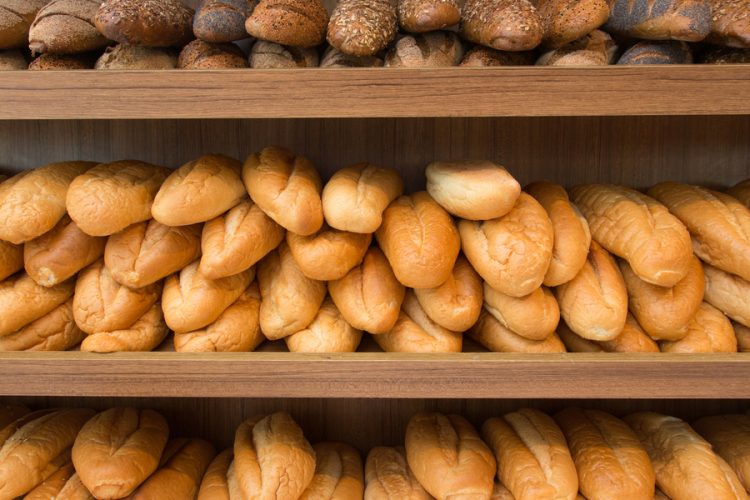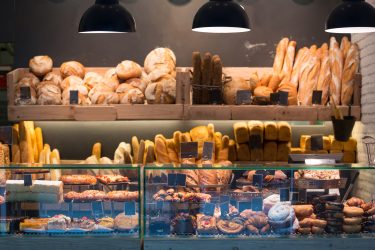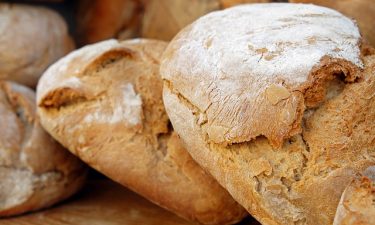Re-inventing in-store bakeries
- Like
- Digg
- Del
- Tumblr
- VKontakte
- Buffer
- Love This
- Odnoklassniki
- Meneame
- Blogger
- Amazon
- Yahoo Mail
- Gmail
- AOL
- Newsvine
- HackerNews
- Evernote
- MySpace
- Mail.ru
- Viadeo
- Line
- Comments
- Yummly
- SMS
- Viber
- Telegram
- Subscribe
- Skype
- Facebook Messenger
- Kakao
- LiveJournal
- Yammer
- Edgar
- Fintel
- Mix
- Instapaper
- Copy Link
Posted: 4 June 2022 | Paul Baker | No comments yet
Paul Baker, Co-founder of St Pierre Groupe, analyses in-store bakeries and how they can be reinvented.


The bakery industry has been my namesake, my craft and profession all my life. As a third-generation baker, it was, perhaps, inevitable that I would end up in the profession. I trained as a craft baker at Exeter College and after I graduated the course closed – due to a lack of students wanting to become bakers. A portent of just one of the issues the industry now faces. The rhythm of daily life in a small rural country bakery is a distant memory now and my journey, through multiple functions in the bakery trade, eventually led me to co-found St Pierre Groupe in 2004.
My experience was initially forged in the UK but then expanded to Europe and for the past decade the US. Helping to lead St Pierre Groupe from being a small private label UK cake supplier to an international branded bakery business meant I had to utilise not only my bakery expertise but also learn how to motivate and lead teams to leverage manufacturing, branding, supply chains, product quality, safety & compliance, product development and, not least, sales. Not forgetting making a profit, creating a business culture that was both fun and rewarding and servicing some of the world’s leading retailers.
So, you might ask, what has this got to do with re-inventing in-store bakeries (ISB)?
Historically in store bakeries were launched in retailers to deliver in store theatre, the aroma of freshly baked crusty bread and a cornucopia of quality baked goods that a traditional craft bakery would offer. When I briefly worked in a major multiple instore bakery, what first struck me was the lack of craft skills required. Efficiency, waste control (or lack of… more on this later) and cost management came above product flair and customer demands. This was 30 years ago – in the interim, this approach has polarised and contributed, ultimately, to the demise of the ISB.


In-store bakeries in UK retailers are now under threat on multiple fronts
ISB in UK retailers are now under threat on multiple fronts – a lack of workers, high wastage levels, hygiene related closures, changing consumer tastes and higher quality expectations, all leading to a financial analysis of the ISB operation that doesn’t withstand scrutiny. There has been much written about the ‘end of the in-store bakery’, but I would like to offer up here an alternative vision for a revitalised, profitable and engaging in store bakery experience.
We launched our St Pierre brand into ISB in the US in 2014. St Pierre is a French bakery brand, with the benefit of shelf life that delivers one percent wastage for the retailer and a consumer product experience which is very difficult to reproduce in an ISB environment. Today the brand is the number one brioche brand in the US and the UK, and we drive sales with the largest retailers in the world.
Following many conversations with industry peers, over the past few years, I thought it would be interesting to share my vision to revitalise ISB.
For me there are several considerations to frame this (r)evolution:
What is the consumer expectation?
Consumers are becoming ever more sophisticated, and their expectations evolve rapidly. Social media provides an instant handheld portal to a world of perfectly curated cuisine – we all know those people that photograph their meal for their next Insta post (if we’re honest most of us have done this at least once). When did you last see a person at an in-store bakery get their phone out to snap the golden, flaky croissants on offer? Me neither. Except it doesn’t have to be this way – the in-store bakery environment needs to shift away from the traditional bakery. Ovens, racks and seas of stainless steel, whilst once necessary, are not at all attractive.
Maybe it’s time for retailers to engage with bakery brands, who know how win consumers through effective communication, experiential marketing and in store activation – backed up by trusted levels of product quality and serious investment. Throw the challenge to these brands – brands who are willing to invest to understand consumers, entice them, make them smile and discover the joy that bakery can offer. The retailer challenge should be how can your brand thrill our customers and deliver an experiential, profitable, sustainable, high quality experience – this is not impossible and there are many examples we have seen across the world of highly successful in store retail/brand partnerships.
As an example, three years ago we developed a bespoke Eiffel Tower stand for flagship retail customers in the US. Our initial order was for 50 Eiffel Towers to showcase our St Pierre brand – to date we have deployed over 7,000 and sales of our brand, in those stores are, on average, 56 percent higher than stores without an Eiffel Tower. Our Eiffel Tower is eye catching, has wheels for manoeuvrability, is well designed to hold stock for the retailer (thus reducing the need for constant replenishment) and durable. It was designed with all the stakeholders in mind – the retailer, in store team, brand owner and consumer.
How do retailers make this profitable and sustainable?
Shouldn’t ISB be all about freshly baked in store products I hear you say? And what do we mean by sustainable, a word that is often deployed now in multiple contexts?
Bread forms the largest percentage of food waste in the UK. The wastage levels in a typical in store bakery are shamefully high and unsustainable – one of the reasons ISBs are now disappearing. One million loaves of bread are thrown away daily in the UK. Staggering statistics that none of us should accept.


Bread is one of the most wasted food items in the UK.
Advances in bakery technology can facilitate a longer shelf life, without the necessity for nasty ingredients. All of our brands have a shelf-life benefit, and they all utilise different methods to achieve this – without compromising product quality. Whilst we don’t offer ‘fresh’ bakery we also don’t contribute to the mountain of daily bread waste and our consumers love our high-quality offering. Surely, it’s time to re-appraise what a product range should incorporate whilst aiming to minimise food waste – an ISB range of brands and fresh bakery that cuts these waste figures dramatically.
What is the product offer?
Premium bakery brands and a selected fresh bakery offer can not only co-exist but attract affluent consumers and re-invigorate the in-store bakery area. Fresh should be managed to minimise the skill level required (thaw and serve products, ambient longer life products), maximise the in-store experience (warmed up breads in small batches – not baked from frozen in huge batches) and fixtures that deliver a new shopping experience.
There are key examples of this being done. Subway are a brilliant case study for personalisation. What they do is personalisation at scale and they prove that the ‘have it your way’ mantra carries evergreen appeal with consumers. Part of this reimagination is about how we present the experience to shoppers, too.
This approach requires a re-structuring of the supply chain, the consumer product offer and the in-store fixtures. Existing suppliers, retailers and brands should be bold and willing to invest in the future of bakery.
Imagine an instore bakery operation that could;
- Demonstrate the best elements of retail
- Deliver reduced levels of waste
- Operate with well-trained teams offering a simple, personalised product selection
- Provide an engaging, colourful, aromatic and vibrant, fun space where brands and fresh bakery co-exist
- Entice consumers with an Insta-worthy experience
- Drive revenues for retailers
Why can’t an ISB deliver all this? I believe it can.
About the author:
Paul Baker is Co-founder of international branded bakery business, St Pierre Groupe. A third-generation baker, Paul has built the business globally, and the St Pierre brand is now the number one brioche brand in America. Its other brands include Baker Street and Paul Hollywood’s ready to bake range. In 2021, St Pierre Groupe turnover exceeded £100 million.
Related topics
Food Waste, Ingredients, Recruitment & workforce, retail, The consumer, Trade & Economy









